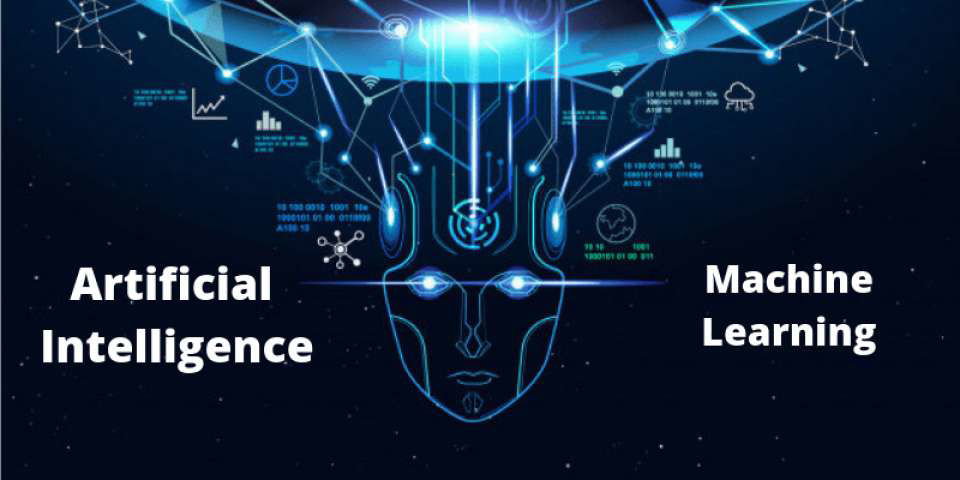3 mins read
From Amazon recommendations to self-driven cars, Artificial Intelligence (AI) seems to be fuelling the world in recent times. The term, along with Machine Learning (ML), is the talk of the town. Together, AI and ML are changing the space of business, tech, and even our personal lives at an astonishing rate. But are they two interchangeable terms? How can we distinguish one from the other, and what are the salient features of each? Let’s find out what’s a cut above: Artificial Intelligence vs Machine Learning.
What is Artificial Intelligence?
According to John McCarthy, artificial intelligence is:

In its fundamental form, AI combines robust datasets with computer science to facilitate problem-solving. It often works in conjunction with deep learning and machine learning, which are two of its subfields. All three consist of AI algorithms that create systems to make predictions based on the data entered into the system. Put simply, AI leverages machines to mimic the decision-making and problem-solving capabilities of human beings.
The hype around AI today is incomparable and for good reason. It is an emerging technology that, in a short period, has revolutionized how we conduct business, make online purchases, or simply live our lives. Experts note that the lifecycle of AI is likely to follow the course of any disruptive technology. From a period of extreme enthusiasm to an ensuing understanding of AI’s importance in the real-time market, through a period of disillusionment. Ultimately, AI is ready to establish itself as the last word on all things tech.
What is Machine Learning?
Very close to AI in definition and function, machine learning is a subset of AI. It uses data to imitate how humans learn and perceive the world around them. Here, it’s important to note that machine learning is designed to improve accuracy over time. For instance, in the last few decades, advancements in processing power and data storage have allowed for the creation of some of the most innovative products with the help of machine learning. Among these, self-driven cars and Netflix recommendations perhaps take the cake!
Machine learning is an integral component of data science. It uses statistics to make classifications and predictions and unearth insights from data mining projects. Subsequently, these insights become a key driver of business decisions, thus influencing the growth metrics of organizations. With the proliferation of big data, machine learning will grow by leaps and bounds, as will the demand for data scientists and ML specialists.
Artificial Intelligence vs Machine Learning
As closely connected as they may be, AI and ML are not the same and certainly not interchangeable terms. While AI enables machines to simulate human behavior, machine learning allows machines to learn automatically from existing data without overt programming. Essentially, AI comprises systems that can perform tasks with human-like efficiency; on the other hand, machine learning teaches machines to provide accurate results with the help of data.
Furthermore, the scope of ML is not as broad as that of AI. This is because AI is more focused on maximizing the chances of success. At the same time, ML is concerned with the accuracy of results and patterns. This is evident in the different applications of the two. For example, applications like Siri, humanoid robots, AI-powered games, and customer support chatbots use AI, while machine learning is employed in products such as Netflix recommendations, Facebook tagging, and Google search algorithms. Last but not least, AI can handle all kinds of data: structured, semi-structured, and unstructured, while machine learning only works with structured and semi-structured data.
Comparing Skills Needed: Artificial Intelligence vs Machine Learning
Artificial intelligence encompasses a wide variety of smart technologies, and anyone looking to specialize in it must be well-versed in certain theoretical fields. First, they must be good with algorithms and have the skills to analyze them, as required. In addition, a solid grasp of data science, data mining, programming, program design, and robotics would also go a long way. Finally, and this is gradually gaining relevance, artificial intelligence knowledge is incomplete without understanding its ethical concerns. This is crucial to developing safer, new technologies that have the potential to change the world.

The field of machine learning, however, demands proficient technical skills. Along with proficiency in applied mathematics, physics, and computer science, they must also be skilled in programming, probability, statistics, algorithms, and neural network architectures. Consequently, most aspiring machine learning specialists pursue a degree in mathematics and computer science, to begin with, and later delve into more specialized aspects of the field.
Comparing Jobs: Artificial Intelligence vs Machine Learning
As per a 2021 report by S&P Global, the role of a machine learning engineer is the second-most sought-after AI job. This is in sync with the US Bureau of Labor Statistics predicting a 22% increase in computer- and information research jobs between 2020 and 2030. Put plainly, jobs in AI and machine learning are here to stay.
Regarding career paths, the most lucrative positions demand proficiency in AI and machine learning. These include high-paying roles in retail, e-commerce, education, finance, and healthcare sectors. With the advent of AI and machine learning, many feared an elimination of job roles. However, in the present day, reality presents a sharp contrast.
Together, AI and machine learning have created a world of opportunity where there is something for everyone – you need to only look. There’s much more to artificial intelligence and machine learning than what meets the eye.












